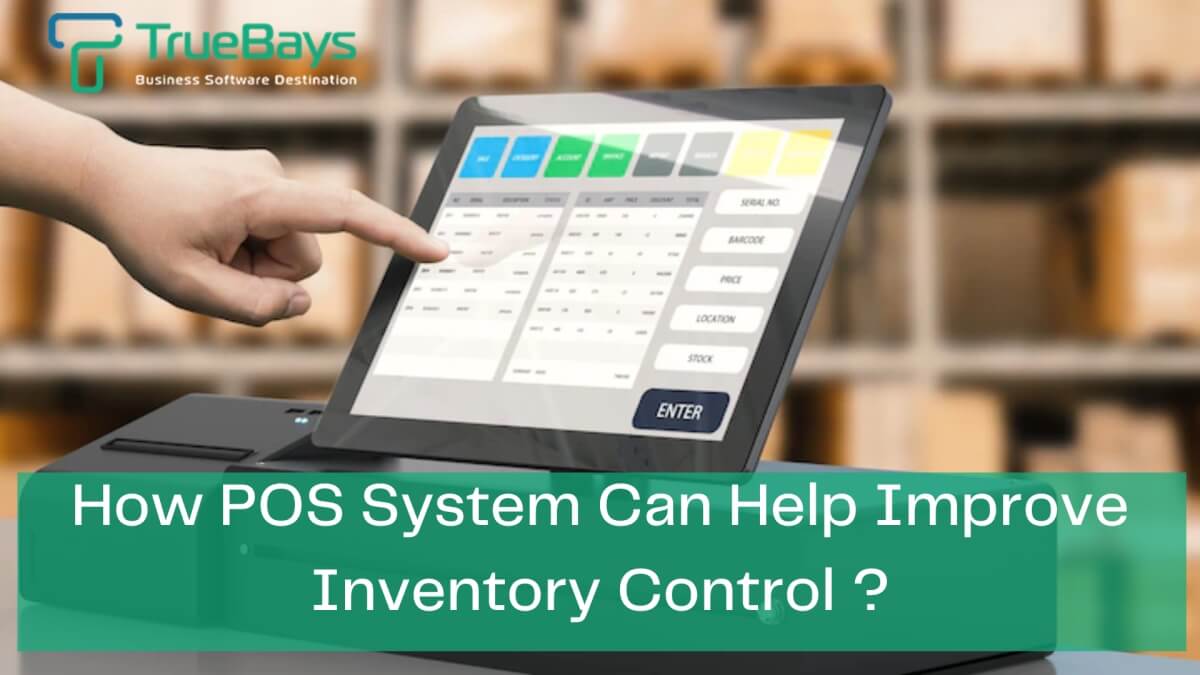How POS System Can Help Improve Inventory Control?
Effective inventory control is essential to ensure that businesses can meet customer demand, minimize waste, and avoid overstocking or understocking. However, Managing inventory can be a daunting task, especially for small businesses that do not have a dedicated team or specialized software to handle it. Point of Sale (POS) software is a powerful tool that can help businesses streamline and improve their inventory control processes. In this article, we will talk about how the use of a POS system can improve inventory control.
What is a POS System?
A POS system is a software and hardware system that enterprises use to process transactions with customers. It usually includes a barcode scanner, a cash register or terminal, and software that manages inventory, transactions, and customer data. POS systems are used in different industries, including retail, restaurants, and hospitality.
Related articles
Top 5 Benefits Of Using A POS Software
A Beginner’s Guide To POS Hardware
How can a POS System Improve Inventory Control?
A POS system can help businesses improve their inventory control in the following ways:
- Multi-location Management:
If your business operates from multiple locations, a POS system will help to manage inventory across these geographies. This means you will have access to the inventory levels for each location, they can transfer products between locations, and manage inventory for all locations from a central location.
- Real-time Inventory Tracking:
Real-time inventory tracking means that you can see how much of each product is in stock at any given time at every location. This information can be used to make informed and cost-effective decisions about ordering new products, as well as identifying slow-moving products that need to be discounted or removed from the inventory.
- Historical Sales Data:
A POS system can offer businesses historical sales data for each product, including data on revenue, sales volume, and profit margins. This information can be used to determine trends and businesses can better understand which products are in high demand and which ones are not selling as well. This information can help businesses optimize their inventory levels, ensuring they have enough stock of popular items while reducing the excess inventory of slow-moving products.
- Accurate Pricing:
A POS system can help businesses achieve accurate pricing by automating the pricing process and providing real-time updates. You can save a business some valuable resources by preventing loss from underpricing or missed revenue from overpricing. With a POS system, you can easily update prices for each product across the entire inventory without wasting valuable time. By using a POS system for pricing, businesses can improve accuracy and efficiency in their inventory control processes
- Automated Reordering:
With a POS system, businesses can set up automated reordering for products that are running low in stock. With automated reordering, businesses can set up predefined reorder points for each product or category, and the system will automatically generate purchase orders when inventory levels fall below these points. By implementing automated reordering in their POS system, businesses can optimize their inventory levels, reduce the risk of stock outs, and improve overall efficiency in their inventory control processes.
- Barcode Scanning:
A POS system can use barcode scanning technology to quickly and accurately record inventory levels and sales. Barcode scanning helps to track inventory levels quickly and accurately and also reduces the risk of manual data entry errors. Additionally, barcode scanning can speed up inventory counts and reduce the time and labor required for inventory management tasks. Barcode scanning can also help businesses identify and address inventory discrepancies, such as missing or misplaced items. By using barcode scanning in their POS system, businesses can improve their inventory accuracy, reduce labor costs, and ultimately improve their bottom line.
- Customer Data:
A POS system can also track customer data, including purchase history, preferences, and contact information. customer data can be used to inform pricing strategies, promotions, and other sales and marketing initiatives, ultimately improving customer satisfaction and loyalty. By leveraging customer data in their POS system, businesses can make more informed decisions about inventory management and overall business strategy.
Implementing a POS System for Inventory Control
Implementing a POS system for inventory control can be a value-adding investment for businesses, but it can also lead to significant cost savings and increased revenue in the long run.
Here are some steps that businesses can take to implement a POS system for inventory control:
- Identify Your Business Needs:
Before choosing a POS software, businesses should decide their requirements and short-list the features that are important for their business. This might include inventory tracking, multi-location management, automated reordering, and customer data tracking.
- Research POS Systems:
Once businesses have decided their needs, they can research POS systems that provide the features they require. It’s essential to choose a POS system that is user-friendly and that can be easily integrated into existing business processes.
- Train Employees:
Once a POS system has been deployed, it’s significant to train employees on how to use it. This might involve providing training materials, conducting training sessions, and offering ongoing support to ensure that employees feel confident
In conclusion, implementing a POS system can significantly improve inventory management for businesses of all sizes. With features such as real-time inventory tracking, automatic reordering, and sales analytics, businesses can gain valuable insights into their inventory and make data-driven decisions to optimize their stock levels, reduce waste, and increase profits. By streamlining inventory management processes, a POS system can also help businesses save time, reduce errors, and improve customer satisfaction. With the right POS system in place, businesses can achieve greater efficiency, accuracy, and profitability in their inventory management practices, giving them a competitive edge in today’s fast-paced marketplace.


